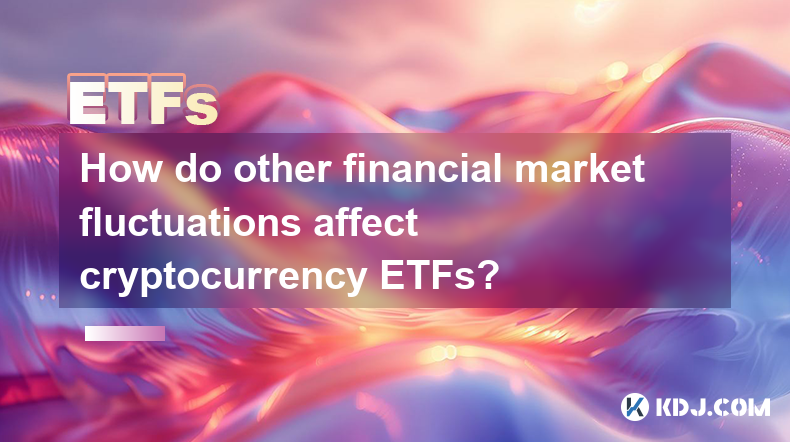-
 Bitcoin
Bitcoin $85,722.3444
4.21% -
 Ethereum
Ethereum $2,036.6327
6.87% -
 XRP
XRP $2.4979
10.36% -
 Tether USDt
Tether USDt $1.0003
0.06% -
 BNB
BNB $614.8882
-2.69% -
 Solana
Solana $133.4627
7.47% -
 USDC
USDC $1.0000
0.01% -
 Dogecoin
Dogecoin $0.1745
4.99% -
 Cardano
Cardano $0.7323
5.24% -
 TRON
TRON $0.2301
-0.43% -
 Chainlink
Chainlink $14.4779
5.64% -
 Toncoin
Toncoin $3.7138
2.34% -
 UNUS SED LEO
UNUS SED LEO $9.8258
0.77% -
 Stellar
Stellar $0.2898
7.55% -
 Hedera
Hedera $0.1949
4.77% -
 Avalanche
Avalanche $19.5941
5.07% -
 Pi
Pi $1.1704
3.40% -
 Sui
Sui $2.4295
6.97% -
 Shiba Inu
Shiba Inu $0.0...01281
3.11% -
 Polkadot
Polkadot $4.5675
4.11% -
 Litecoin
Litecoin $92.4352
4.38% -
 Bitcoin Cash
Bitcoin Cash $341.5667
2.39% -
 MANTRA
MANTRA $6.8659
-1.43% -
 Bitget Token
Bitget Token $4.7223
2.13% -
 Ethena USDe
Ethena USDe $0.9998
0.03% -
 Dai
Dai $1.0003
0.03% -
 Hyperliquid
Hyperliquid $15.0397
11.92% -
 Uniswap
Uniswap $6.9443
10.33% -
 Monero
Monero $207.6129
0.03% -
 Aptos
Aptos $5.5642
5.21%
How do other financial market fluctuations affect cryptocurrency ETFs?
Fluctuations in interest rates, stock markets, and economic indicators can significantly impact crypto ETFs, affecting their prices and investor returns.
Jan 08, 2025 at 05:04 am

Key Points:
- Crypto ETFs are funds that track the value of a basket of crypto assets, offering investors exposure to the crypto market without having to buy and custody individual coins or tokens.
- Financial market fluctuations can significantly impact crypto ETFs, as they introduce volatility and uncertainty into the broader investment landscape.
- Understanding the potential effects of financial market fluctuations on crypto ETFs is crucial for investors evaluating and managing their exposure to this asset class.
How do other financial market fluctuations affect cryptocurrency ETFs?
1. Interest Rate Movements:
- Interest rate hikes by central banks can reduce the appeal of crypto ETFs as alternative investments.
- Higher interest rates increase the opportunity cost of holding speculative assets like cryptocurrencies, making investors more risk-averse.
- This can lead to outflows from crypto ETFs, driving down their prices.
2. Stock Market Performance:
- Correlation between crypto markets and traditional financial markets has strengthened in recent years, particularly with the rise of institutional investment.
- Major swings in the stock market can spill over into the crypto market, impacting crypto ETF returns.
- Downturns in the stock market can create a "risk-off" sentiment, reducing demand for crypto ETFs.
3. Economic Data and Outlook:
- Economic indicators such as inflation, employment, and GDP growth can influence the perceived riskiness of crypto investments.
- Positive economic data can boost investor confidence in the future, leading to increased interest in crypto ETFs.
- Conversely, negative economic news can trigger uncertainty and risk aversion, potentially suppressing crypto ETF valuations.
4. Regulatory Landscape:
- Changes in regulations surrounding cryptocurrencies can have significant effects on crypto ETFs.
- Stricter regulatory frameworks can deter investors and reduce the availability of crypto ETFs.
- Positive regulatory developments, such as the approval of new spot-based crypto ETFs, can fuel optimism and drive inflows into crypto ETFs.
5. Global Economic Events:
- Macroeconomic events such as geopolitical conflicts or major economic crises can create uncertainty and volatility across financial markets.
- These events can impact the overall appetite for risk, affecting the demand for crypto ETFs.
- Economic downturns or geopolitical tensions can lead to increased safe-haven demand and decreased interest in crypto ETFs.
FAQs:
Q: What is the best way to mitigate risk when investing in crypto ETFs?
A: Diversifying your portfolio with both crypto and non-crypto assets, as well as allocating only a portion of your investments to crypto ETFs, can help reduce risk.
Q: How can investors monitor the impact of financial market fluctuations on crypto ETFs?
A: Pay attention to economic news, interest rate announcements, and major market events. Also, track the performance of underlying crypto assets and their correlation with traditional financial markets.
Q: What factors should investors consider when choosing a crypto ETF?
A: Research expense ratios, underlying index, liquidity, and the reputation of the issuer. Consider your investment goals and risk tolerance before selecting a crypto ETF.
Q: Can crypto ETFs provide exposure to specific crypto sectors or themes?
A: Yes, some crypto ETFs focus on specific industry segments, such as decentralized finance or smart contract platforms. Investors can gain focused exposure to particular crypto trends and themes.
Q: Are crypto ETFs a suitable investment for all investors?
A: No, crypto ETFs can be volatile and are not suitable for all investors. New and inexperienced investors should exercise caution and seek professional advice before investing in crypto ETFs.
Disclaimer:info@kdj.com
The information provided is not trading advice. kdj.com does not assume any responsibility for any investments made based on the information provided in this article. Cryptocurrencies are highly volatile and it is highly recommended that you invest with caution after thorough research!
If you believe that the content used on this website infringes your copyright, please contact us immediately (info@kdj.com) and we will delete it promptly.
- DeFi Dungeons Unveils Tokenomics for Its Core Token, $GOLD, Ahead of March 19 Launch
- 2025-03-20 04:46:01
- Polygon (POL) Prices May Crash to $0.04 as the Market Enters a Bearish Phase
- 2025-03-20 04:46:01
- Looks like those pesky Khans and dragons are at it again in the upcoming Magic: The Gathering set, Tarkir: Dragonstorm.
- 2025-03-20 04:46:01
- Telekom MMS Has Entered a Partnership with ZetaChain to Enhance Blockchain Connectivity and Security
- 2025-03-20 04:46:01
- Bitcoin DeFi Ecosystem Could Reach $10B If Ethereum's 'Hoodi' Update Fails
- 2025-03-20 04:46:01
- We Recently Published a List of 12 Best Bitcoin Stocks To Buy According To Billionaires. In This Article, We Are Going to Take a Look at Where Coinbase Global, Inc. (NASDAQ:COIN) Stands Against Other Best Bitcoin Stocks to Invest
- 2025-03-20 04:46:01
Related knowledge

What role does SEC play in Bitcoin ETF approval?
Feb 25,2025 at 06:48am
Key Points:SEC's Role in Bitcoin ETF Approval ProcessHistorical Efforts to Establish a Bitcoin ETFSEC's Criteria for Bitcoin ETF ApprovalPotential Impact of a Bitcoin ETF on the Cryptocurrency MarketTimeline and Outlook for Bitcoin ETF ApprovalArticle:SEC Play in Bitcoin ETF ApprovalThe United States Securities and Exchange Commission (SEC) plays a crit...

Who is eligible to issue Bitcoin ETFs?
Feb 25,2025 at 11:13am
Key Points:Only regulated financial institutions with the necessary expertise and infrastructure are eligible to issue Bitcoin ETFs.The Securities and Exchange Commission (SEC) has not yet approved any spot Bitcoin ETFs, but has approved several futures-based ETFs.Applicants must meet stringent requirements, including having a strong track record and su...

What impact does Bitcoin ETF have on the market?
Feb 25,2025 at 11:37am
Key Points:Introduction to Bitcoin ETFs and their role in the cryptocurrency marketHistorical development and performance of Bitcoin ETFsPotential benefits of Bitcoin ETFs for investors and the marketRisks and limitations associated with Bitcoin ETFsRegulatory considerations and their impact on Bitcoin ETFsArticle:Introduction to Bitcoin ETFsBitcoin exc...

Which investors are Bitcoin ETFs suitable for?
Feb 27,2025 at 04:01pm
Key Points:Understanding Bitcoin ETFsBenefits of Bitcoin ETFsSuitability of Bitcoin ETFs for Different InvestorsAssessing Risk Tolerance and Investment GoalsConsidering Short-Term and Long-Term StrategiesExamining Tax ImplicationsSeeking Professional AdviceUnderstanding Bitcoin ETFsBitcoin exchange-traded funds (ETFs) are investment vehicles that track ...

What is the administrative expenses of Bitcoin ETFs?
Feb 26,2025 at 12:24am
Key Points:Administrative expenses are a crucial factor to consider when evaluating Bitcoin ETFs.These expenses can significantly impact the performance of the fund and ultimately the investor's returns.Understanding the various components of administrative expenses is essential for informed decision-making.Comparing administrative expenses across diffe...

What are the fees for purchasing Bitcoin ETFs?
Feb 27,2025 at 07:13pm
Key Points:Bitcoin exchange-traded funds (ETFs) are a cost-effective and regulated way to gain exposure to Bitcoin.Fees associated with Bitcoin ETF purchases vary depending on the platform, trading volume, and account type.It is essential to evaluate fee structures carefully to optimize investment returns.Fees Associated with Purchasing Bitcoin ETFs1. B...

What role does SEC play in Bitcoin ETF approval?
Feb 25,2025 at 06:48am
Key Points:SEC's Role in Bitcoin ETF Approval ProcessHistorical Efforts to Establish a Bitcoin ETFSEC's Criteria for Bitcoin ETF ApprovalPotential Impact of a Bitcoin ETF on the Cryptocurrency MarketTimeline and Outlook for Bitcoin ETF ApprovalArticle:SEC Play in Bitcoin ETF ApprovalThe United States Securities and Exchange Commission (SEC) plays a crit...

Who is eligible to issue Bitcoin ETFs?
Feb 25,2025 at 11:13am
Key Points:Only regulated financial institutions with the necessary expertise and infrastructure are eligible to issue Bitcoin ETFs.The Securities and Exchange Commission (SEC) has not yet approved any spot Bitcoin ETFs, but has approved several futures-based ETFs.Applicants must meet stringent requirements, including having a strong track record and su...

What impact does Bitcoin ETF have on the market?
Feb 25,2025 at 11:37am
Key Points:Introduction to Bitcoin ETFs and their role in the cryptocurrency marketHistorical development and performance of Bitcoin ETFsPotential benefits of Bitcoin ETFs for investors and the marketRisks and limitations associated with Bitcoin ETFsRegulatory considerations and their impact on Bitcoin ETFsArticle:Introduction to Bitcoin ETFsBitcoin exc...

Which investors are Bitcoin ETFs suitable for?
Feb 27,2025 at 04:01pm
Key Points:Understanding Bitcoin ETFsBenefits of Bitcoin ETFsSuitability of Bitcoin ETFs for Different InvestorsAssessing Risk Tolerance and Investment GoalsConsidering Short-Term and Long-Term StrategiesExamining Tax ImplicationsSeeking Professional AdviceUnderstanding Bitcoin ETFsBitcoin exchange-traded funds (ETFs) are investment vehicles that track ...

What is the administrative expenses of Bitcoin ETFs?
Feb 26,2025 at 12:24am
Key Points:Administrative expenses are a crucial factor to consider when evaluating Bitcoin ETFs.These expenses can significantly impact the performance of the fund and ultimately the investor's returns.Understanding the various components of administrative expenses is essential for informed decision-making.Comparing administrative expenses across diffe...

What are the fees for purchasing Bitcoin ETFs?
Feb 27,2025 at 07:13pm
Key Points:Bitcoin exchange-traded funds (ETFs) are a cost-effective and regulated way to gain exposure to Bitcoin.Fees associated with Bitcoin ETF purchases vary depending on the platform, trading volume, and account type.It is essential to evaluate fee structures carefully to optimize investment returns.Fees Associated with Purchasing Bitcoin ETFs1. B...
See all articles





















































































